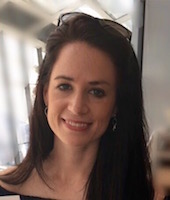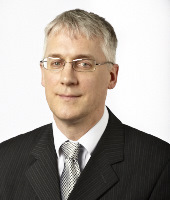Primary Education Studies, BA Hons
Inclusion and diversity: make a lasting impact in Primary Education to progress into an Initial Teacher Education Programme or employment within the wider primary education field.
Education has the power to transform lives and societies. The primary education studies degree has the potential to enable you to see and engage with education-related issues and how they affect children’s lives.
The wider education field needs you in a diverse and multicultural society to create positive change, through considering equity and social justice. This ethos is embedded through how you will learn on the programme within an inclusive and diverse learning community that will enable you to become critical thinkers.
This degree provides a comprehensive understanding of the field through exploration of critical topics which include the history of education, curriculum development, the philosophy of education, and the political dimensions of education and development. You will gain a global perspective on educational practices, explore child psychology to better understand developmental needs, and learn inclusive teaching strategies to support personalised learning. Furthermore, your assessments are designed to stimulate critical thinking through a range of formats such as essays, presentations, debates, projects, and portfolios.
Our in-depth three-year degree in primary education studies will develop your awareness of current practice in primary schools and early years settings. It is ideal if you want to work in an education-related field, that maybe teaching or speech & language, health, social care, childcare, museum & art gallery work or charities that work with children.
UCAS points
112 (full requirements below)
Course/institution codes
X330 A BA/PriEdSt
School
Location
Duration
3 years full-time
Start month
September
Home* fees 2025/26
£9,535
What you should know about this course
* The Department for Education has indicated that it intends to raise the Home tuition fee limit from £9,250 to £9,535 for 2025/26.
What you will study
About the course team
We are an experienced team of academics and industry professionals. Trained postgraduate researchers may also contribute to seminar teaching with latest research insight. Our teaching is informed by research and consultancy work, and 97 per cent of our faculty lecturers hold a teaching qualification.
Come and meet us
We are offering virtual events so that you can still experience how Greenwich could be the right university for you.
Next Open Days
Got a question?
To find out more about our Open Days and Campus Tours or if you need any assistance, please email opendays@gre.ac.uk.
Entry requirements
Qualifications
Programme not open to overseas applicants requiring a Student Visa.
- 112 UCAS Tariff points. We accept A Levels, T Levels, BTECs, Access to HE and all other qualifications with UCAS Tariff points.
- In addition, you will need: GCSE Mathematics, GCSE English Language all at grade 4/C. Equivalent qualifications may be considered. If you want to progress to PGCE study, you will also need to gain GCSE Science Grade 4/C or equivalent.
We make Contextual offers to this programme. Applicants that meet specific eligibility criteria will be made a contextual offer with a reduced tariff of up to 16 UCAS Tariff points. Other entry requirements such as GCSEs, Interview, etc., will still need to be met. For further information, please see our Contextual Admissions policy.
Application and selection
- Applicants will also be required to:
- Provide an academic or professional reference.
- Complete a Suitability Declaration.
- Pass an Occupational Health check.
- Pass an Enhanced Disclosure and Barring Service (DBS) check.
For more information, use our contact form or call us on 020 8331 9000.
You can also read our admissions policy.
Available to overseas students?
No
Can I use Prior Learning?
Find out more on our Recognition of Prior Learning pages.
Enhanced disclosure
Applicants for this course are required to complete a suitability declaration, an enhanced disclosure and barring service (DBS) check, and an occupational health check.
How you will learn
Teaching
Learning takes place through a combination of timetabled learning and independent study.
You can view more information about how each module is taught within our 'What you will study' section.
Seminars and workshops enable you to discuss and develop your understanding of topics covered in lectures in smaller groups. You will also be able to meet your personal tutor. Timetabled learning may fall between 9am and 9pm depending on your courses and tutorials.
Class sizes
Class sizes vary by module. Lectures are normally attended by larger groups, and seminars/tutorials by smaller groups. This can vary more widely for modules that are shared between degrees. All students will have opportunities for 1-to-1 time with their tutors.
Independent learning
Outside of timetabled sessions, you are also expected to dedicate around 30 hours a week to self-study. This may involve further reading and research, preparing coursework and presentations, and preparing for tests and exams. Our facilities are designed to support you in these activities.
We encourage you to join societies and participate in sporting and other activities to engage in the wider life of the university community.
Overall workload
If you are studying full-time, you should expect the workload to be similar to a full-time job. For part-time students, this will reduce in proportion with the number of courses you are studying.
Each module you study towards this degree is worth 15 or 30 credits. These represent around 150 or 300 study hours respectively. If you receive 100 contact hours for a 30-credit module, you should expect to commit 200 hours to independent study to complete it successfully.
Assessment
You can view how each module is assessed within our 'What you will study' section.
Each course has formal assessments which count towards your grade. Some courses may also include 'practice' assignments, which help you monitor progress and do not count towards your final grade.
Feedback summary
We aim to provide feedback on assignments and to release examination results within 15 working days.
Dates and timetables
The academic year runs from September to June.
Full teaching timetables are not usually available until term has started. For any queries, please use our contact form.
Official statistics on Discover Uni
Full time
Fees and funding
Tuition fees
| Cohort | Full time | Part time | Distance learning |
|---|---|---|---|
| Home* | £9,535 | N/A | N/A |
University is a great investment in your future. English-domiciled graduate annual salaries were £10,500 more than non-graduates in 2023 - and the UK Government projects that 88% of new jobs by 2035 will be at graduate level.
(Source: DfE Graduate labour market statistics: 2023/DfE Labour market and skills projections: 2020 to 2035).
* The Department for Education has indicated that it intends to raise the Home tuition fee limit from £9,250 to £9,535 for 2025/26.
Home tuition fee limits: Find out more
Other costs
Resources: you may need to purchase books for your studies, as well as specific computer software (estimate, £150 per year).
Optional recommended Year 1 Core Text: Doherty, J., & Hughes, M. (2009). Child development: Theory and practice 0-11. Harlow, UK: Pearson Education. (Approx £40 new but can be bought second-hand.)
Scholarships and bursaries
We offer a wide range of financial help including scholarships and bursaries.
The Greenwich Bursary
This bursary is worth £700 for new undergraduate students with a low household income, entering Year 0 or 1 who meet the eligibility criteria.
EU Bursary
Following the UK's departure from the European Union, we are supporting new EU students by offering a substantial fee-reduction for studying.
Financial support
We want your time at university to be enjoyable, rewarding, and free of unnecessary stress, so planning your finances before you come to university can help to reduce financial concerns. We can offer advice on living costs and budgeting, as well as on awards, allowances and loans.
Careers and placements
Will I have a work placement?
Placements are a core element of teacher training which enable our trainees to put theory into practice in a supportive environment. We are extremely lucky to work with a wide range of partners across London, Essex and Kent to support our trainees. We work closely with trainees when deciding on placements to ensure that trainees get the best training possible whilst on our programmes. Our strong partnerships ensure our trainees are well supported and have outstanding experiences whilst training with us.
What sort of careers do graduates pursue?
Opportunities are available in primary and early years teaching after completing a one-year PGCE or School Direct qualification. Other top up routes include social work, and child nursing. You will develop a range transferable professional and academic skills that are in demand in a range of other careers, and you may also consider employment as a higher-level teaching assistant, with the police, education, publishing, local government or journalism.
Do you provide employability services?
The Employability & Careers Service (ECS) is committed to supporting our students and recent graduates in their transition towards a rewarding graduate destination. We strive to deliver a professional service with the aim of empowering our students to achieve their potential. We provide the following:
- CV and cover letter checks
- Application support
- One-to-one careers advice
- Interview tips and support
- Careers fairs
- Internships
- Graduate jobs
Accommodation
Avery Hill
Our Avery Hill halls of residence are a home away from home to over 1,200 students. For those studying in Greenwich, our free shuttle bus service takes you to Greenwich campus in only 25 minutes. Excellent transport links also mean you can be in central London in under 30 minutes, and you're a short walk away from the historic Eltham Palace.
The Avery Hill student village has many useful facilities including a convenience store, launderette and two cafes. The halls are an ideal option for those wanting access to the hustle and bustle of London while living in a safe and relaxing parkland environment.
With our seven different halls, you have a variety of options depending on your preferences and budget. Rooms start at £133.98/wk and include Wi-Fi, utility bills, access to our on-site gym, 24/7 security and 24-hour residential support.
Support and advice
Academic skills and study support
We want you to make the most of your time with us. You can access study skills support through your tutor, our subject librarians, and our online academic skills centre.
Where appropriate, we provide support in academic English and mathematics. If you need to use particular IT packages for a specific module, we provide training for this.
Do you provide employability services?
The Employability & Careers Service (ECS) is committed to supporting our students and recent graduates in their transition towards a rewarding graduate destination. We strive to deliver a professional service with the aim of empowering our students to achieve their potential. We provide the following:
- CV and cover letter checks
- Application support
- One-to-one careers advice
- Interview tips and support
- Careers fairs
- Internships
- Graduate jobs
Not quite what you were looking for?
We've got plenty of other courses for you to choose from. Browse our undergraduate courses or check our related courses below.....
Education studies at the University of Greenwich
Are you passionate about education? Whether you’re working in the field or looking to start your career, our award-winning lecturers will help you get the best from your studies.
Visit our education studies degrees page.
Become an educational practitioner
Robert Morgan, Programme Leader talks us through the programme.
Education studies degrees
Mode of study
Select from the dropdown below.
| Course level | |
| UCAS code | |
| Duration | |
| Location |










